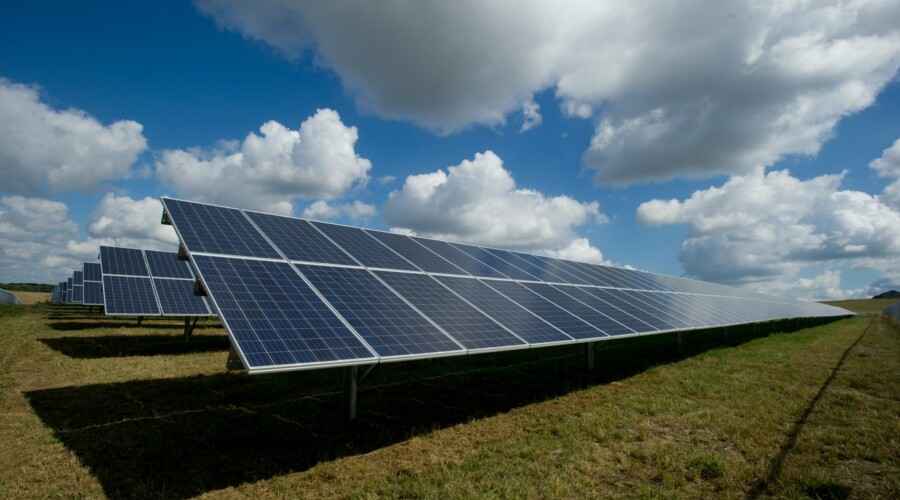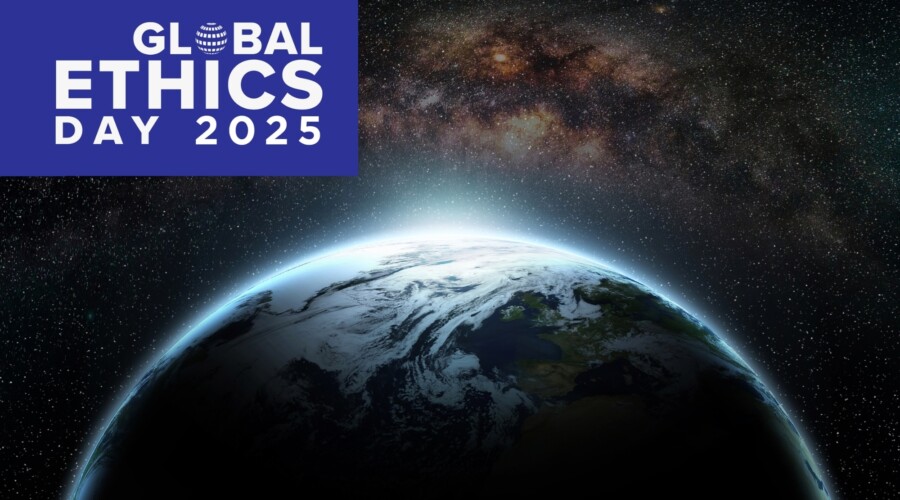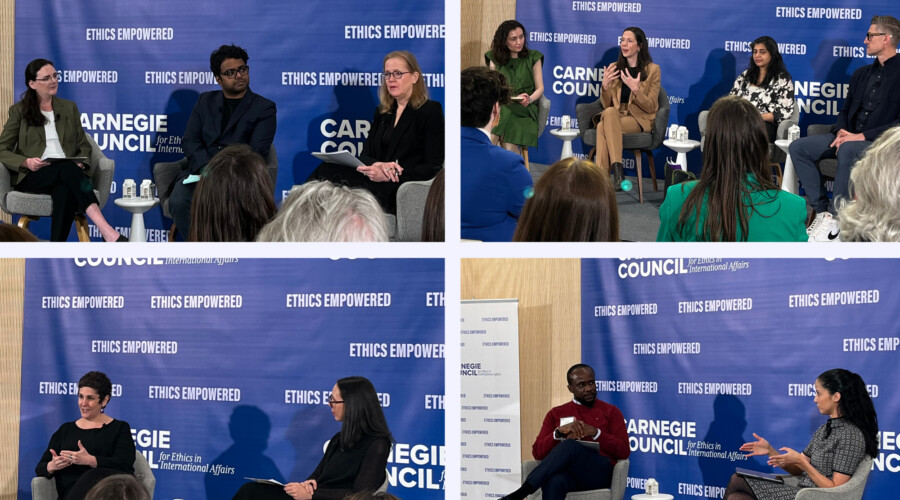At Carnegie Council, we believe ethics matter. For those of us who also believe that ethical principles are the foundation of our democratic society, this is a challenging moment. The new American president lives by his own code of conduct, proudly disrupting traditional expectations and constraints. For now, U.S. voters have rewarded him for brash irreverence and the promise of change. As an organization focused on educating the public on ethical choices, we are concerned that this period of leadership not have a corrosive effect on American politics and culture, or on the politics and culture of other nations. We believe it is our role as Carnegie Council for Ethics in International Affairs to keep standards high and to resist a slide toward incivility. We trust that schools, churches, businesses, and responsible media outlets will do so too. Other organizations will no doubt focus on analyses of leadership style, rhetoric, and political conflict. At Carnegie Council, we will focus on the ethical principles at stake in the actual policies of the new administration—specifically its foreign policy. This is where our Council's educational programs can contribute most significantly to public knowledge and understanding. Here at Carnegie Council we are following three policy areas closely: Alliances - Alliances are not deals. Alliances are pacts of solidarity based on common values and common interests. The NATO pact was signed in 1949 as "the shield of the west." The American security pact with Japan after World War II was founded on open trade, democratic governance, and the creation of a stable security system in the Pacific. These alliances, forged by American leadership, have always been more than matters of mere contract. They have long been viewed by Republicans and Democrats alike as successfully promoting America's own enlightened self-interest. Alliances work because states have shared interests. When interests no longer align, alliances can and should shift. If we are entering a transitional period now, as President Trump is suggesting, this will be a seismic shift from the post-1945 order. If we are leaving one order for another, we must understand the risks and consequences as well as the costs and benefits. At Carnegie Council, our U.S. Global Engagement program will continue to illuminate two particular flashpoints in the evolution of the Atlantic alliance: U.S.-Russia relations, and the rise of the Far Right in Europe. Our senior fellow David Speedie brings years of experience and access to key participants in these unfolding stories. Our Asia Dialogues program will increase its activity in elucidating the Pacific alliance structure. Our senior fellow Devin Stewart is conducting original research and facilitating educational exchange on a number of issues ranging from geopolitics and populism to religion and education—all important elements in building bilateral and multilateral relations. Climate - What does "America First" mean if the climate warms to such an extent that sea-level rise affects the American coastline, global refugees increase, and political instability follows? Even if one is skeptical of dire predictions, surely there is the need to protect clean air, clean water, and diminishing natural habitats. As one of the top emitters of carbon and hazardous wastes, the United States has a responsibility to participate in—if not lead—collective action to mitigate its effects. The United States can and should be a leader in developing clean energy and technologies. The ethical dimension to this challenge is straight-forward. How do we achieve a balance between development and the human relationship to the natural world? How do we serve as stewards of the planet, insuring a healthy and vibrant environment for the generations to follow? One Carnegie Council answer is the Carnegie Climate Geoengineering Governance Initiative (C2G2) directed by senior fellow Janos Pasztor. The initiative is an investigation into the potential use of technologies to cool the climate and the governance issues that might arise in implementation. C2G2 engages leaders from all sectors, including research science, applied technology, government, business, and environmental advocacy. It will neither promote nor be necessarily against the potential use of geoengineering, but will advocate for the development of governance frameworks necessary for potential deployment, as well as for expanded research on such techniques, including their environmental, social, and economic consequences.
Free Speech - Free speech is the bedrock of our work. As an organization that works in the public interest, we are alarmed by the tone of political debate and the growing distrust of the media. Basic norms of journalism are under fire, along with the norms of civilized discourse. We share the concerns of many about "fake news," "post-truth" politics, "alternate facts," and unaccountable social media. As global media entities gain power, countervailing government power in the form of regulation or intimidation will become increasingly noteworthy both at home and abroad. What the Trump administration will do in this arena is yet to be determined. But encounters with Wikileaks, disagreements with the American intelligence community, and clashes with journalists signal impending disruptions. At a recent Carnegie Council Public Affairs program, Timothy Garton Ash outlined "ten principles for a connected world." This was followed by a later program with Thomas Friedman, who asked: "How do you get ethics in cyberspace?" We are pursuing these lines of thinking vigorously with a variety of programs featuring top-ranking military and government officials, as well as global business leaders and media experts. As the new administration settles into office, we are reminded that Carnegie Council occupies a special place in our society as a free and independent educational institution. We will continue to do our part by convening and publishing thoughtful, fact-based analyses on these issues and more. Democracy depends on an active, informed citizenry that is enabled and empowered to think independently. Carnegie Council programs are offered in that spirit. Please join us in person or online. Come to learn. Come to participate. Become part of our civil conversation.



